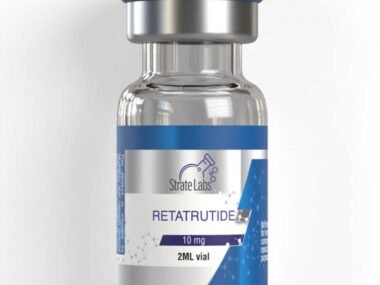Hormonal changes are a natural part of life, affecting energy levels, mood, and physical performance during various stages such as puberty, pregnancy, menopause, and aging. For athletes and fitness enthusiasts, these fluctuations can pose additional challenges, from reduced stamina to slower recovery times. The key is adopting strategies that help manage these shifts while maintaining an active and healthy lifestyle.
Focusing on fitness-specific factors like nutrition, tailored exercise routines, stress reduction, and professional support can significantly impact how well you navigate hormonal changes. This guide provides practical advice to keep you energized and focused on your fitness goals.
1. Understanding Hormonal Changes and Their Impact on Fitness
Hormones like estrogen, testosterone, and cortisol play a critical role in your athletic performance. Fluctuations can impact metabolism, muscle strength, and endurance, often leading to fatigue, reduced performance, and challenges in maintaining body composition.
For those experiencing significant disruptions, such as menopausal symptoms or andropause, bioidentical hormone replacement therapy may offer relief. This therapy mimics the hormones naturally produced by your body, helping restore balance and alleviate symptoms like decreased energy, mood swings, and diminished stamina.
Onus IV & Hydration specializes in personalized care for hormonal imbalances, combining advanced IV hydration therapies with their proprietary B.O.S.S.™ System to enhance comfort and effectiveness.
2. Maintaining a Balanced, Fitness-Focused Diet
Diet is essential for regulating hormones and sustaining peak performance during workouts. Fueling your body with nutrient-dense foods can help stabilize energy levels and enhance recovery. Athletes should emphasize:
- Healthy fats:Found in avocados, nuts, seeds, and fatty fish, these support hormone production and joint health.
- Complex carbohydrates:Options like whole grains, sweet potatoes, and quinoa provide long-lasting energy and prevent blood sugar crashes during training.
- Protein-rich foods:Lean meats, eggs, legumes, and plant-based proteins aid in muscle repair and recovery.
Limiting processed foods and added sugars is equally important, as they can cause insulin spikes and disrupt hormonal balance. Incorporating antioxidant-rich fruits and vegetables into your meals can further reduce inflammation, helping you recover faster and perform better.
3. Tailoring Your Exercise Routine to Hormonal Shifts
Physical activity is one of the most effective ways to regulate hormones and maintain overall fitness. Exercise can reduce stress hormones like cortisol, boost testosterone levels, and release endorphins that enhance mood. However, adjusting your routine to accommodate hormonal changes is essential for optimizing performance and recovery.
Here are some fitness-friendly exercise suggestions:
- Strength training:Builds muscle and boosts metabolism while supporting hormonal balance.
- Yoga and Pilates:Improve flexibility, core strength, and stress management, helping to lower cortisol levels.
- Cardiovascular workouts:Activities like running, cycling, or swimming enhance cardiovascular health and increase stamina.
On days when hormonal changes leave you feeling low on energy, consider lighter activities such as stretching, walking, or restorative yoga. Listen to your body and adapt your routine accordingly to prevent burnout or injury.
4. Managing Stress for Improved Performance
Chronic stress can disrupt your hormonal balance and hinder your ability to stay active. Elevated cortisol levels, often triggered by stress, can lead to fatigue, weight gain, and even muscle breakdown. Adopting stress management techniques can help you maintain energy and focus during workouts.
Fitness-oriented stress reduction strategies include:
- Mindfulness and breathing exercises:Spend a few minutes focusing on deep, controlled breaths to calm your nervous system.
- Active relaxation techniques:Engage in hobbies or low-intensity activities like gardening or tai chi to create mental space and unwind.
- Post-workout recovery routines:Incorporate foam rolling, stretching, or a short meditation session after exercise to promote recovery and reduce stress.
Prioritizing recovery and downtime helps regulate cortisol levels and keeps you mentally sharp for your next workout.
5. Ensuring Quality Sleep for Recovery
Sleep is vital for physical recovery and hormonal regulation, especially for athletes. During deep sleep, your body produces growth hormone, repairs muscle tissue, and balances stress hormones. Poor sleep disrupts these processes, leading to fatigue, impaired recovery, and reduced athletic performance.
To improve sleep quality:
- Stick to a schedule:Wake up and go to bed at the same time daily.
- Create a sleep-friendly environment:Keep your bedroom cool, dark, and free of distractions.
- Avoid screens before bed:Limit blue light exposure by turning off electronic devices at least an hour before sleeping.
If sleep issues persist, consult a healthcare professional for guidance, as sleep is the cornerstone of both hormonal health and athletic recovery.
6. Hydration and Toxin Reduction for Optimal Performance
Proper hydration supports every aspect of your body’s function, including hormonal health. Dehydration can impair energy levels and concentration, making it harder to stay active. Aim to drink plenty of water throughout the day and include water-rich foods like fruits and vegetables in your diet.
Dehydration also impairs endurance and concentration, making it harder to complete workouts effectively. Female athletes, in particular, should aim to drink water consistently throughout the day and replenish lost fluids after exercise.
Additionally, limiting exposure to environmental toxins like BPA (found in plastics) and endocrine disruptors in cleaning products or personal care items can support hormonal balance. Opt for reusable water bottles, natural cleaning products, and non-toxic skincare to minimize these risks.
7. Seeking Professional Guidance for Peak Performance
Professional support can provide valuable insights into managing hormonal changes while optimizing your fitness routine. Regular checkups and hormone level assessments help identify imbalances early, allowing for personalized solutions.
A specialist can recommend targeted treatments, tailored dietary plans, and fitness adjustments to help you maintain peak performance. Combining professional advice with proactive self-care ensures you stay on track with your health and fitness goals.
In conclusion, managing hormonal changes while staying fit and active is achievable with a proactive approach. You can optimize performance and recovery at any stage of life by tailoring your diet, exercise, and stress management techniques to your body’s needs. Prioritizing hydration, sleep, and professional guidance further supports your ability to adapt to hormonal shifts.
Hormonal changes don’t have to hinder your athletic progress. With the right strategies in place, you can maintain energy, improve performance, and continue pursuing your fitness goals with confidence and resilience.










